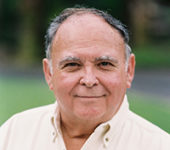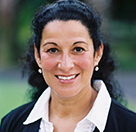• by Rosana G. Rodríguez, Ph.D., and Abelardo Villarreal, Ph.D. • IDRA Newsletter • November – December 2006 • 



Public schools belong to their communities. Families, communities, educators and other diverse stakeholders who form part of an informed and engaged public concerned about the welfare of their children and the strength of their public schools must exercise shared leadership and shared accountability for schools’ success in educating their children.
Certainly, our schools and communities need to address equal access and representation of races in programs of excellence and opportunity. Building upon traditional civil rights efforts that focus on issues of race and gender, our schools and communities in the future also must become places that value the complexity of thought and perspective that diversity brings, as well as the challenges and opportunities that it represents.
The 50th anniversary of the Brown vs. Board of Education Supreme Court ruling in 2001 highlighted the challenges that continue to slow the full realization of the promise of educational equality and equity among underserved minority groups. This momentous event was an opportune occasion to reflect on its promise and act on its full realization.
African American and Latino communities share a common need to demand excellence and equity in education. They share the negative consequences of an often indifferent and irrelevant educational system. Through planning and acting as a united force, these communities can craft education changes that will eliminate academic achievement gaps between the “haves” and the “have nots.” The impact that these two communities can have on initiating educational reform cannot be ignored.
During the anniversary year of the Brown decision, IDRA launched an initiative that has evolved into the “Brown and Mendez Blueprint Dialogues for Action,” a series of community dialogues by African American and Latino leaders focused on education. The initiative is now poised to be taken to scale with blueprint dialogues held throughout the United States. These will gather cross-race, cross-sector leaders in communities across the country to plan and lead actions to strengthen neighborhood public schools for the benefit of all children.
Why dialogue on diversity with a focus on fulfilling the promises of the Brown and Mendez court rulings? A history of underperformance created by inequity, disregard and educational disengagement of minority children requires us to take a new collective and inter-connected path for our children’s sake and for our own. Within the Brown and Mendez initiative lies the expectation that diverse leaders will be more strategic in their approach to equity, access and excellence for all children. The expectation is that this approach to diversity will move across sectors and race in deliberate ways to work past the challenges of diversity and complexity and beyond past divides to achieve local goals that improve educational opportunities in local communities.
Embedded within the civil rights issues that undergird this work, there is a mandate for a new type of leadership to emerge. The majority of participants in the Brown and Mendez dialogues at the community level come from diverse backgrounds and sectors. Adding to this complexity, race is central to planning a blueprint for quality education for all students.
Carrying out an effective plan requires a new breed of leaders, ones who are visionary and who possess the skills necessary to forge and sustain effective partnership within the complexity of diversity. R. Roosevelt Thomas Jr. identifies the new paradigm for future leaders as follows: “Future leaders will differentiate between representation and diversity. Representation will refer to the presence of multiple races and both genders in the workplace, while diversity will refer to the behavioral differences, similarities and tensions that can exist among people when representation has been achieved” (2006).
We must learn to thrive within this diversity because the essence of creativity and human development demands that we embrace the complexity of human interactions reflected in more diverse settings in order to take thought beyond where it has been and identify effective solutions and new pathways. This will require new skills, new ways of understanding and valuing different perspectives, histories, values and diverse cultural and linguistic roots. We all will need to understand how to build trust and plan together for the greater good in an increasingly complex environment of diversity, whether in a classroom or a board room, in our families or in community settings.
Leaders who articulate a vision that can be shared by all are those who are able to acknowledge and surpass their own discomfort and the tensions that diversity can create. These are courageous voices and indelible spirits who struggle to make important collective decisions despite that tension and complexity. They are the ones who dare to try, to begin to trust one another or to regain trust that was once broken.
They have honesty to recognize their own limitations as well as their own strengths and to value others, who, while different from themselves, are struggling with similar issues. In fact, they are ones who realize that within the very complexity that diversity brings lies untapped strength and creativity for a better future. Our ability to navigate within that complexity will result in the momentum necessary to move us forward from vision to action so that we can collectively create a new reality that is better for us all.
With funding from the Annie E. Casey Foundation and in collaboration with local partners and civil rights leaders, IDRA is providing the structure, process and setting for two new dialogues. Local participants will provide the commitment and ingenuity as pioneers in a new way of thinking and planning collectively for the greater good.
The IDRA Brown and Mendez community dialogues are now moving beyond Texas into Albuquerque, New Mexico, in November 2006, and Little Rock, Arkansas in January 2007.
Visit the IDRA web site to learn more about this initiative and how these two communities make plans for their future. You can also contact IDRA if you are interested in helping to host a Brown and Mendez blueprint dialogue in your community.
Resources
Thomas Jr., R. “Diversity Management: An Essential Craft for Leaders,” Leader to Leader (Leader to Leader Institute and Jossey-Bass, Summer 2006) Number 41, pg. 45.
Rosana G. Rodríguez, Ph.D., is director of the IDRA Community and Public Engagement. Abelardo Villarreal, Ph.D., is director of the IDRA Division of Professional Development. Comments and questions may be directed to them via e-mail at feedback@idra.org.
[©2006, IDRA. This article originally appeared in the November – December 2006 IDRA Newsletter by the Intercultural Development Research Association. Permission to reproduce this article is granted provided the article is reprinted in its entirety and proper credit is given to IDRA and the author.]


